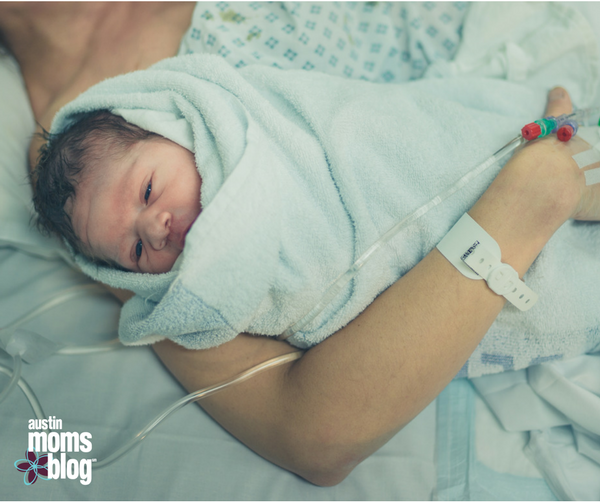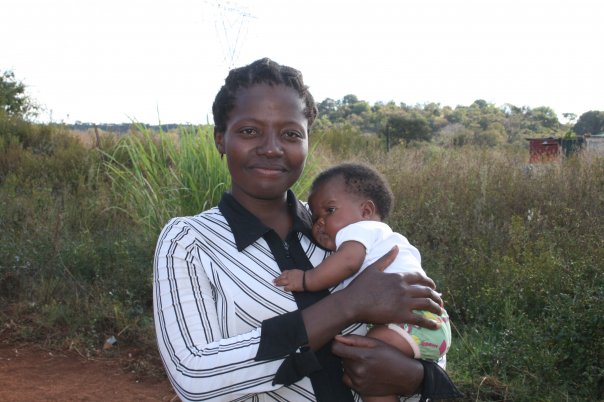
I want to tell you a story. It was my second year of graduate school and I was living in rural South Africa. My roommate and I were woken in the middle of the night because a woman from the neighboring village was giving birth (prematurely). We fumbled to get our rain boots on and raced through the mud to just barely catch a glimpse of the Magogo (Tswana for Grandmother) delivering a sweet baby girl. She wasn’t breathing. We watched as Magogo used her mouth to suction the baby’s throat. I’m not kidding. Suction bulbs (and electricity) are scarce in Africa. She would suck and spit, suck and spit. Finally, baby girl caught some air and started crying. Tears were streaming down my face.
Magogo borrowed a sweater from another bystander. She wrapped the sweater snug around the baby and started rubbing her to warm her body. She was breathing, but it was rapid and she was cold. She yelled for someone to call the “bus” (ambulance) and then used twine to cut the umbilical cord. Before I could process it all, Magogo placed that teeny tiny baby girl in my arms and told me to run as fast as I could to meet the bus at the road. Adrenaline kicked in. I could feel the mud splashing against my legs as I pushed through the uneven terrain, a young boy lighting my way with a flashlight. I handed over baby girl to the paramedic and watched as the bus drove into the darkness.
That night was my first experience with birth, but it was also the awakening of a deep rooted desire within me to support women in this terrifying, beautiful, and transformative stage of life. It was the beginning of my journey on team birth. Not team natural birth or cesarean birth or give me all the drugs birth. Just team birth. Cause guess what ladies? Birth is birth. Anyone that grows a child, has to let it come out. One way or another, it’s happening. But you know what no one seems to want to talk about? The emotional shit show the birth journey can drag you through, no matter the type of birth you end up experiencing.
Birth is so often feared. It’s not necessarily the norm in our culture to gain knowledge and understanding of the normal process of birth or become informed in our choices and options. I remember vividly all the anxiety my husband and I felt during my first pregnancy. During a prenatal visit my husband kept asking our OB a series of rapid fire questions. Are there things she can’t eat? Activities she can’t do? Places we shouldn’t go? And you know what our OB said to him? Pregnancy isn’t a disease.
Y’all, pregnancy and birth are normal. It’s not abnormal cancer cells attacking your body. The symptoms you may feel have purpose and mean your body is working the way it should. Women’s bodies were created to grow and birth humans and that doesn’t have to be feared, it should be celebrated! Sure, things can go wrong and a woman’s body may not respond the way it is intended, but that’s the beauty of medicine and interventions. And if a woman needs intervention, that doesn’t mean her birth is less than. Her birth should be honored just the same as any other birth and if we as a culture fight to eliminate the competition of birth, then not only will we be nicer, more empathic humans, but we will also ensure more positive outcomes for moms and their babies.
For most, a satisfying birth experience is not about where or how the baby is born, but instead about how the experience made them feel. Positive birth outcomes are almost always linked to couples feeling prepared, supported and informed about their birth. In fact, the thing that seems to consistently determine whether a woman has positive emotions connected to her birth is more about how she was treated by those surrounding her. Our culture expects women to be happy simply because she has a healthy baby and are often discouraged from processing the journey of their arrival because look, it’s a baby.
Yes, this is true, but diminishing feelings is never a good idea and birth experiences are absolutely linked to our mental health. Women need to be validated in their struggles, especially postpartum, and our society as a whole really does a piss poor job of allowing women to express emotions surrounding their birth. Birth is not solely a physical process. It is a deeply emotional and transformative experience and that needs to be honored. I always want to hold space for a woman’s emotional experience and I refuse to limit the conversation to how her baby physically arrived on this Earth.
The birth story I shared initially was intense for me. I didn’t know at the time that it would affect my perceptions of birth or even that it would inspire an entire career in my heart, but the main thing that experience always brings me back to is this: Birth in rural South Africa doesn’t have the privilege of being divisive. There simply aren’t resources (or stable internet) for women to argue about which birth team is the best to join. It’s a community event and a normal stage and process of life that is immensely celebrated.
A couple days after baby girl’s birth, I went to find that sweet mama in the village. I sat with her in her makuku (house) as she nursed her babe and I told her how honored I was to attend her birth. I’ll never really know how she felt about her birth cause language barrier y’all, but her energy told me she felt supported and that’s all that matters.











Beautiful story!